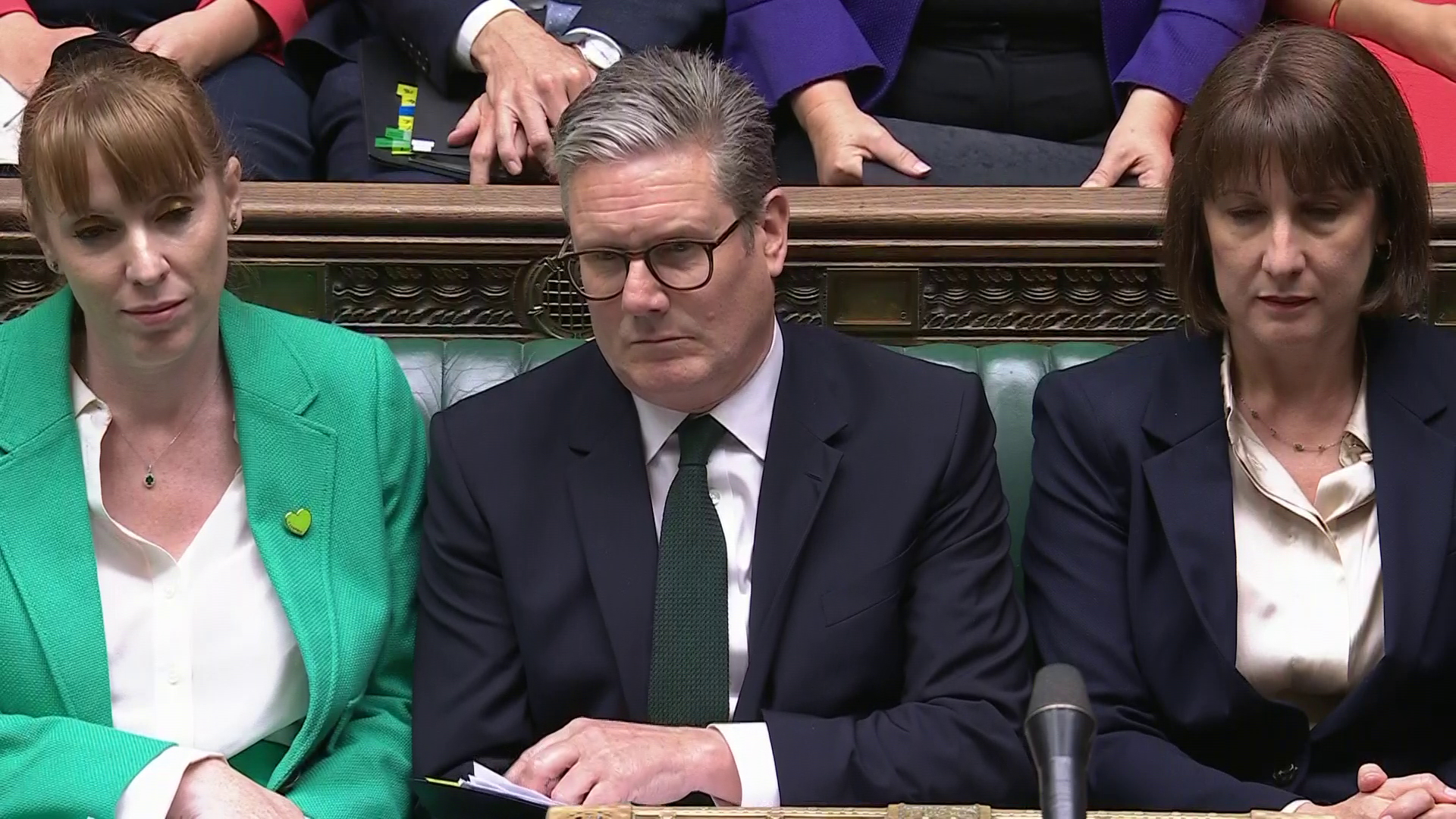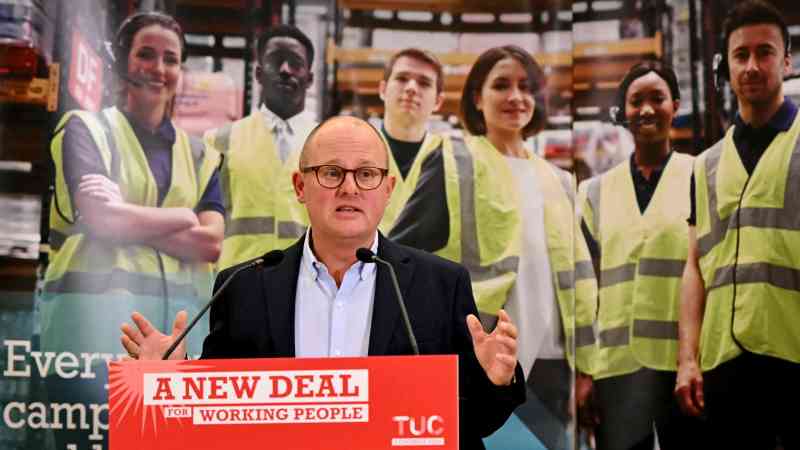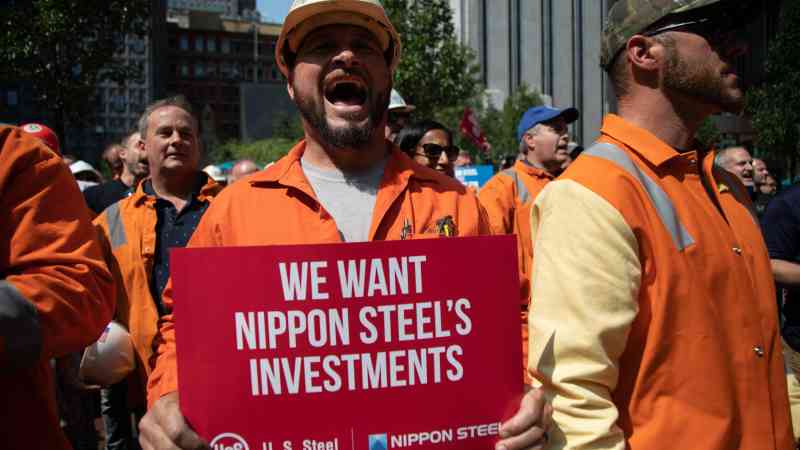Critics of workers’ rights will be proved wrong, insists TUC chief
The 1990s were a time of outrage. Riots were sparked by Margaret Thatcher’s poll tax. John Major’s subsequent Conservative government was mired in sleaze. Then with the dawn of New Labour, the laddish antics of the Gallagher brothers riding the wave of Britpop success swept across Britain, drawing the ire of parents up and down the country.
Anger swirled before the introduction of the minimum wage in 1999 by Tony Blair’s Labour government. The Confederation of British Industry, the country’s largest business lobby group, warned in 1995: “Even a low minimum wage would reduce job opportunities and create major problems for wage structures in a wide range of companies.”
These fears failed to materialise. The policy has substantially boosted the living standards of the lowest-paid workers. In fact, the Resolution Foundation, a left-leaning think tank, has hailed the minimum wage as the most successful policy in a generation.
There are parallels to draw between the hostile environment that the minimum wage entered more than two decades ago and the one that surrounds Labour’s plans to strengthen workers’ rights, dubbed “make work pay”.
For Paul Nowak, general secretary of the Trades Union Congress, critics of Labour’s plans will be proved wrong just as they were on the minimum wage.
Scaremongers of the minimum wage “were wrong then and they’re wrong about this as well”, he told The Times before the 156th TUC conference in Brighton this week, which brings together its 48 member trade unions.
It is taking place against the backdrop of a Labour government for the first time in 15 years. Excitement among delegates is greater than usual. Sir Keir Starmer will deliver a speech to the congress on Tuesday.
Unions head into the TUC congress buoyant. Public sector pay is rising and workers are in line for a fairer deal. Initially, they did not welcome the rights package with open arms. Unite criticised Labour for watering it down during the general election campaign. But after some mud slinging, everyone now seems to be on board.
Nowak, 52, who signed up to his first union when he was 17, said of the package that it is “good for good employers because it levels the playing field. Good employers won’t be undercut by the cowboys.”
He added: “Most employers in this country don’t use zero-hours contracts, do pay sick pay from day one, don’t threaten their staff with fire and rehire. But they’re often undermined by the employers that do those things.”
Angela Rayner, the deputy prime minister, has promised an employment bill that will implement key aspects of the new deal for working people within 100 days of coming to power. That deadline expires in mid-October.
Justin Madders, minister for employment rights, said: “We have an ambitious agenda to make work pay and update workers’ rights to fit the modern economy. This includes ensuring those who want to work flexibly can do so, while ending one-sided flexibility and exploitative zero-hours contracts.
“Our new legislation will also put an end to unscrupulous fire and rehire practices, which have no place in a modern labour market.”
The intention behind the measures is to minimise unstable employment practices, such as zero-hours contracts and irregular working patterns. It is designed to dampen worker apathy, improve engagement and give staff greater rights over minimum contracted hours, which economists have said can boost productivity.
However, businesses have expressed concerns about the package raising the cost of employing workers.
Nowak countered accusations that Starmer has been too gloomy about the economy, saying that the prime minister’s sobering rhetoric is a “useful corrective” to the Conservatives’ claims that the economy had turned a corner.
He said: “That wasn’t the lived experience of our members … their lived experience of the dying days of the Conservative government was pretty bleak.
“Rishi Sunak never had to ring up to get a GP appointment at eight in the morning. Jeremy Hunt wasn’t sending his kids to schools that were literally falling around their heads.”

Starmer and Rachel Reeves, the chancellor, have come under fire for painting an overly pessimistic picture of the economy. Some have questioned the validity of their claim that the Conservatives left them the worst economic inheritance since the Second World War, including £22 billion of government overspend.
Recently, figures confirmed Britain’s growth was the strongest in the G7 in the first half of this year; inflation is close to the Bank of England’s 2 per cent target and interest rates have started to fall — all during Labour’s first 66 days in power. Rishi Sunak looks on in envy.
The glum fiscal framing is likely to be used as justification for tax increases at the October 30 budget, with the chancellor said to be eyeing tweaks to the capital gains and inheritance tax regimes.
Nowak said: “The government should set out in the budget what the little bit of light at the end of the tunnel looks like.” He added that Reeves should consider equalising the rates of capital gains and income tax, level the playing field between online and bricks-and-mortar retailers and explore a potential wealth tax.
Government departments are still reeling from cuts during the austerity years despite a big increase in the tax burden since 2019, causing the standard of public services to deteriorate.
Polling carried out by Opinium on behalf of the TUC found that 73 per cent of the public think that public services are getting worse. The organisation called on Labour to set up a “public services workforce commission”, which would bring together unions, employers and experts to examine solutions to this malaise.
Nowak said: “People voted for change at the last election. The government has got a 174-seat majority … I think they need to use that majority to deliver the change that people wanted.
“I’m not gonna pretend for one minute that it’s going to be easy and you can flick a switch and you put right 14 years of neglect.”
Tough decisions lie ahead for Starmer and Reeves. The honeymoon is already over.






